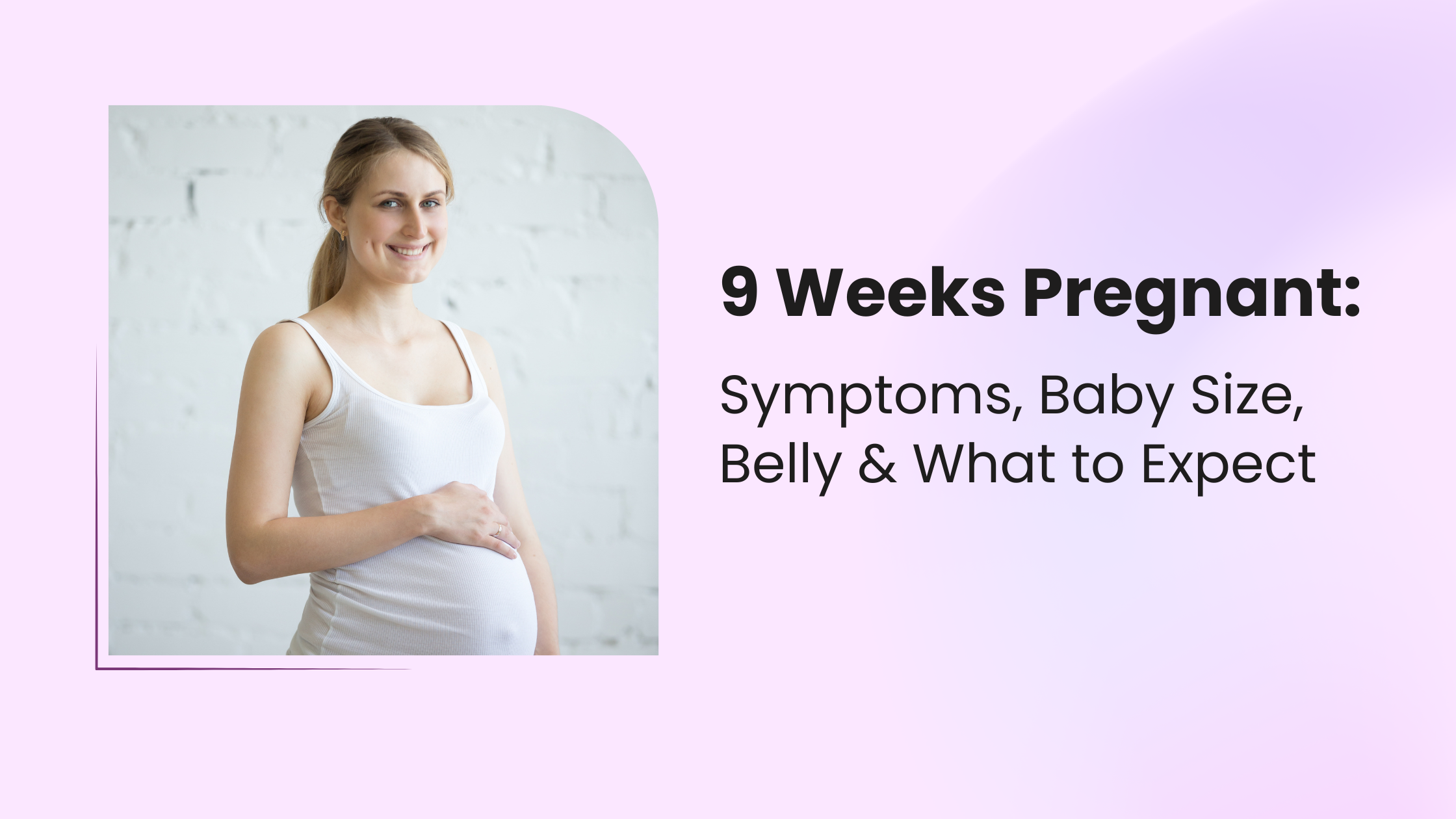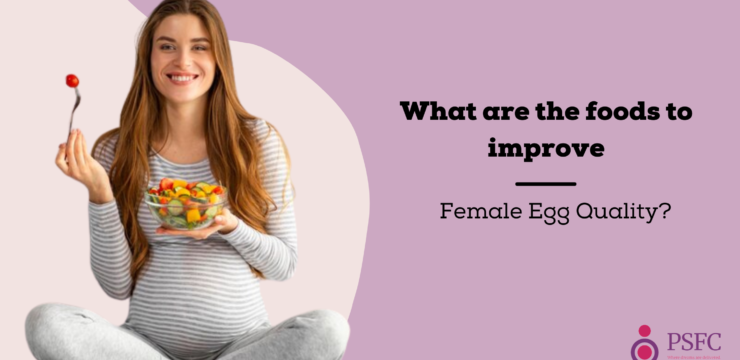At 9 weeks pregnant, you have now entered the last week of your second month of pregnancy, and your baby is growing rapidly. Additionally, your body is adjusting quite well because you begin to experience stronger symptoms than ever.
Are You Wondering What Happens at 9 Weeks Pregnant and Does Spotting Occur Normally? This blog covers symptoms, baby development, belly changes, and diet. Also, when to visit your physician is discussed and explained clearly.
What’s Happening in My Body at 9 Weeks Pregnant?
At 9 weeks pregnant, your body is doing everything in its power to support the developing child.
Here is what is happening inside:
- Hormone levels are increasing: Estrogen, progesterone, and HCG are at high levels, causing more pregnancy signs.
- Your uterus has grown: It looks like a grape now.
- Increase in blood volume: Your body is producing more blood to provide the necessary nutrition and oxygen to your child.
- Digestive changes: Progesterone slows down digestion, potentially leading to swelling, gas, and constipation.
- Fatigue: Baby takes a lot of energy, so it’s normal to feel tired.
- Many women still do not have a large abdomen in 9 weeks, although swelling may make their pants feel tighter than normal.
9 Weeks Pregnant Symptoms
Women do not necessarily experience similar symptoms during the 9 weeks of pregnancy. Here are the most frequently reported nine-week gestation symptoms:
- Morning sickness: For many mothers, nausea and vomiting remain strong symptoms of morning sickness.
- Breast tenderness: Your breasts are swollen, you have a sore throat, and you may look heavy.
- Frequent urination: hormones and an extended uterus put pressure on your bladder.
- Food Cravings and Aversions: Strong options and dislikes are completely common for some foods.
- Fatigue: Hormonal changes and changes in blood volume can make you more tired.
- Mood Swing: Emotional ups and downs are part of life.
- Light Cramps: Your uterus is expanding to accommodate your growing baby, making room in its wall.
- Headache or dizziness: usually causes changes in hormones and low blood sugar.
- If the symptoms appear excessive, such as excessive vomiting, dizziness, or severe cramps, seek medical advice immediately.
What Does My Baby Look Like at 9 Weeks Pregnant?
- In nine weeks of pregnancy, your unborn baby must develop gradually, look like an identifiable human shape, such as the tadpole of the fetus.
- Size: In 9 weeks of pregnancy, children usually measure around an olive or grape in terms of body shape: about 0.9–1 in tall.
- Weight: Just under 2 grams.
Appearance:
- His head is much larger than the rest of his body.
- Facial features are becoming more sophisticated; the eyes, nose, and ears are becoming more specific.
- Arms and legs are growing longer, while fingers and toes become separated.
- Baby lost his or her tail-like structure.
- Movement: Although your baby may already be making little movements, you likely have to detect them.
Is 9 Weeks Pregnant Considered 3 Months?
Pregnancy is typically measured in weeks; however, some individuals prefer to think in months. At 9 weeks pregnant, you are just entering month 3 of gestation. Your due date should still be around 7 months away. Pregnancy lasts 40 weeks and not 9 months. Many expectant parents believe that counting in weeks is more accurate. Doctors tend to use this approach.
9 Weeks Pregnant Belly – What to Expect
- At 9 weeks, your belly may not yet show signs of being pregnant if this is your first baby.
- First-time moms: Most first-time mothers do not show until around Week 12 or later.
- Second-time moms: Their baby bump may show earlier due to looser abdominal muscles.
- Bloating: Many women feel as if their belly has grown larger due to gas and fluid retention.
- Uterine Size: By week 9, your uterus should have reached roughly the size of a grapefruit.
- Though you might not look pregnant, you may still experience the changes inside of you as the pregnancy progresses.
Baby Development at 9 Weeks Pregnant
- Fetal development at 9 weeks is absolutely fascinating! Here’s what is taking place within your little one’s body:
- Heartbeat: Beating at 140-170 beats per minute, which is twice as fast as yours.
- Brain: Our minds grow quickly, creating increasingly intricate structures.
- Muscles and nerves: Beginning to connect and enable small movements.
- Eyes and Eyelids: Emerging slowly but steadily.
- Ears: External ears have begun forming on both sides of the head.
- Internal organs: Our liver, kidneys, and digestive system are becoming more functional with time.
- Placenta: Assumes more responsibility in terms of nourishing a newborn.
- Your baby is no longer considered an embryo; at this stage, it is known as a fetus.
Can My Baby Feel Me Rubbing My Belly at 9 Weeks?
At 9 weeks pregnant, your unborn child’s nervous system may still not be advanced enough for them to sense external contact and touch from outside your womb. Your unborn will not yet feel you rubbing her belly. But gently rubbing your baby’s belly can help you connect mentally with them and release feel-good chemicals like oxytocin at the same time. After 20 weeks, your baby may respond to touch, sound, and light stimulations. This exercise is a great way to strengthen the relationship between parents and babies, even if your infant doesn’t comprehend yet.
9 Weeks Pregnant Spotting – Should You Worry?
Spotting during pregnancy may be concerning, but it doesn’t always signal trouble.
Common causes of 9-week pregnant spotting:
Implantation bleeding (which typically happens earlier).
Cervical irritation after sexual activity or an exam: symptoms.
Hormonal changes affecting the cervix.
When to Contact Your Doctor: Spotting is often associated with heavy menstrual periods; therefore, it may require medical intervention to stop.
Extreme cramps or backache. Any mild spotting should always be reported to your doctor to stay safe because tissue or blood clots could pass.
Healthy Diet at 9 Weeks Pregnant
At nine weeks pregnant. A healthy pregnancy diet is important. Since your unborn child’s organs and systems continue to grow quickly, eating healthy food at 9 weeks pregnant is important.
What to eat
- Make sure your diet includes foods like spinach, broccoli, and beans that are high in leafy greens and folates. Lean meat products, eggs, poultry, beans, and tofu are all sources of protein.
- Calcium-rich foods: Milk, curd, cheese, and strong plant foods are the main sources.
- Iron sources include red meat, lentils, and spinach.
- Omega-3 fatty acids are found in walnuts, chia seeds, and salmon (low mercury content).
- Healthy Snacks: Loaded with fruits, nuts, and whole grains to provide continuous energy levels.
What to avoid:
- Alcohol and smoking, high mercury fish as well, such as swordfish, king mackerel, and shark.
- Raw or undercuffed meat, eggs, or seafood.
- Avoid more than 200 mg/day of caffeine consumption.
- Unexpected dairy products.
- Small food at regular intervals can help reduce the symptoms of morning sickness.
When to See Your Doctor at 9 Weeks Pregnant
Most pregnant women visit their first prenatal appointment between 8 and 12 weeks of pregnancy.
On your 9th pregnancy doctor visit, you may have:
An ultrasound allows doctors to monitor your child’s heartbeat and development. Blood tests to check hormone levels, blood type, and immunity can provide accurate insights. Urine tests should detect protein and infections. Prevention of counseling services focuses on diet, lifestyle, and supplements during pregnancy.
If you experience any of these symptoms, see your doctor as soon as possible:
Heavy bleeding or severe cramps. Extreme nausea and vomiting (unable to keep the fluid down). High fever or an unexpected discharge.




